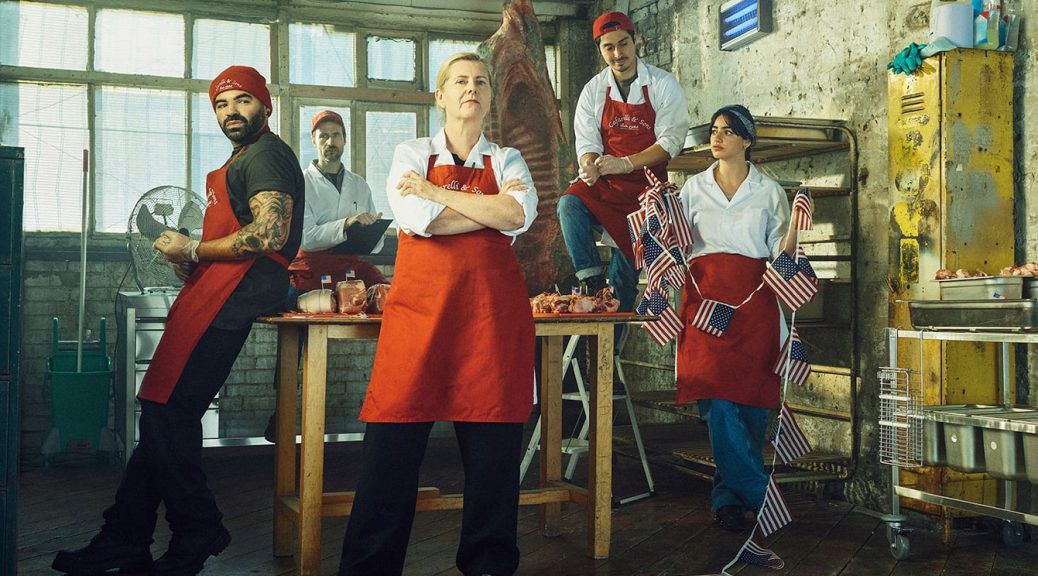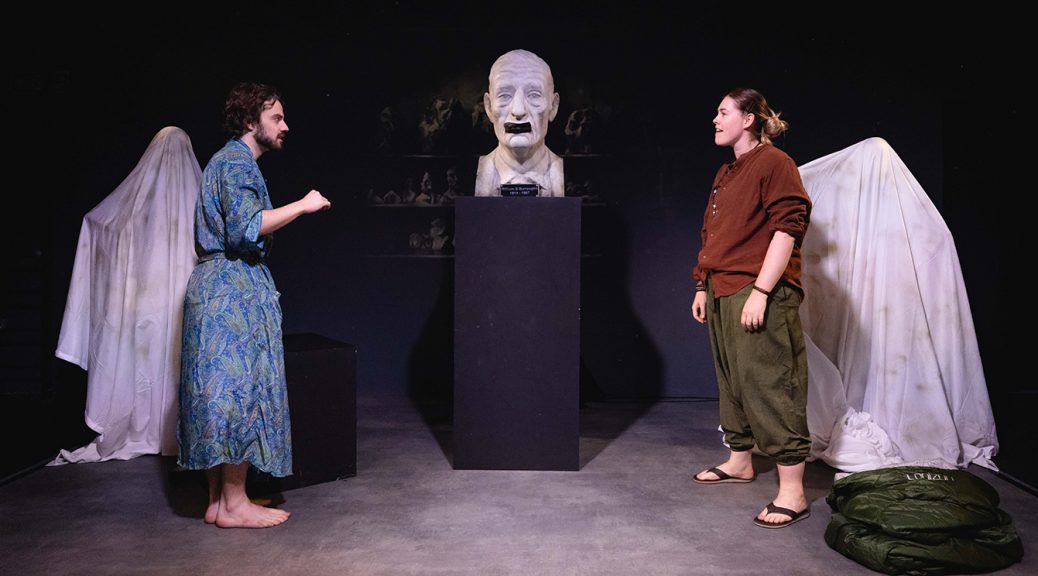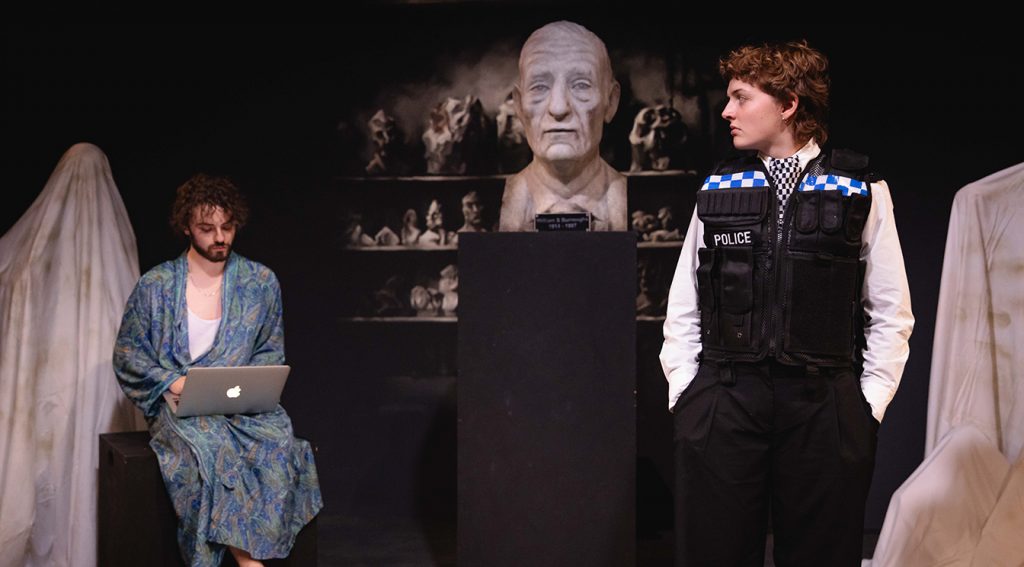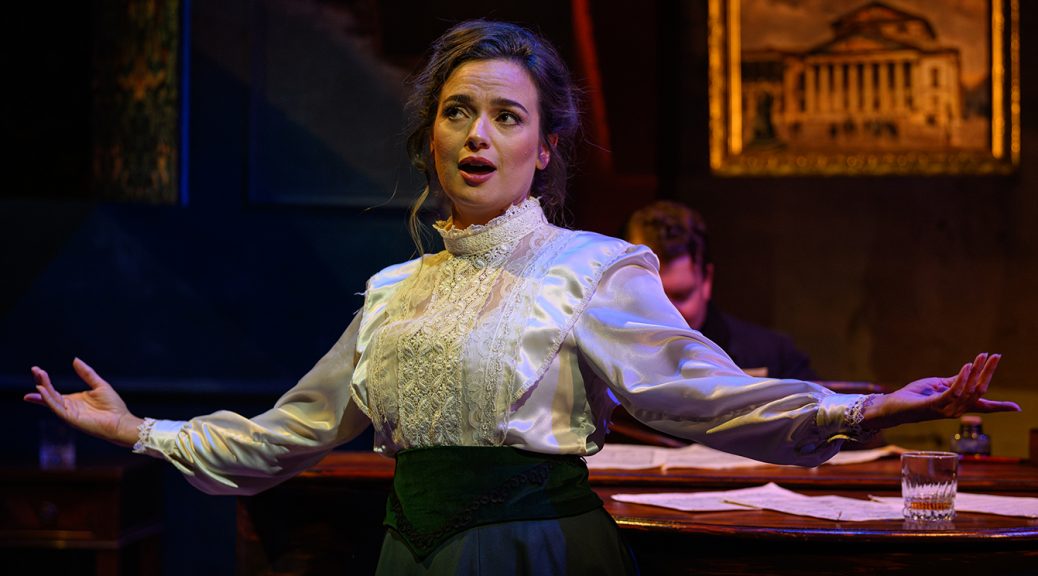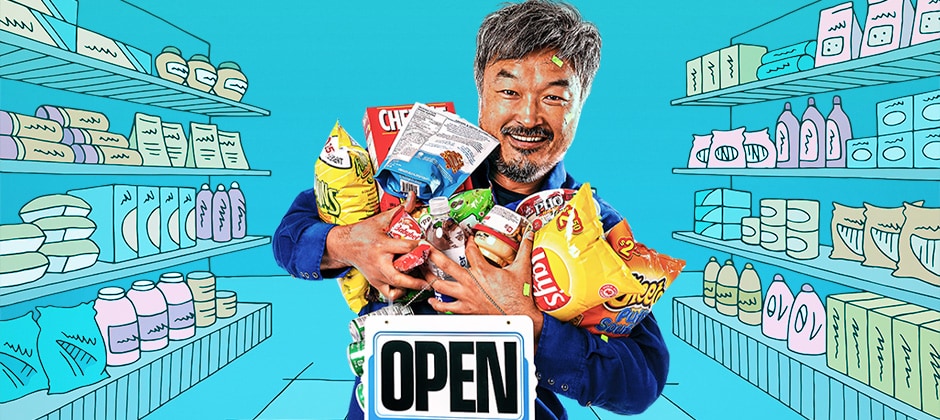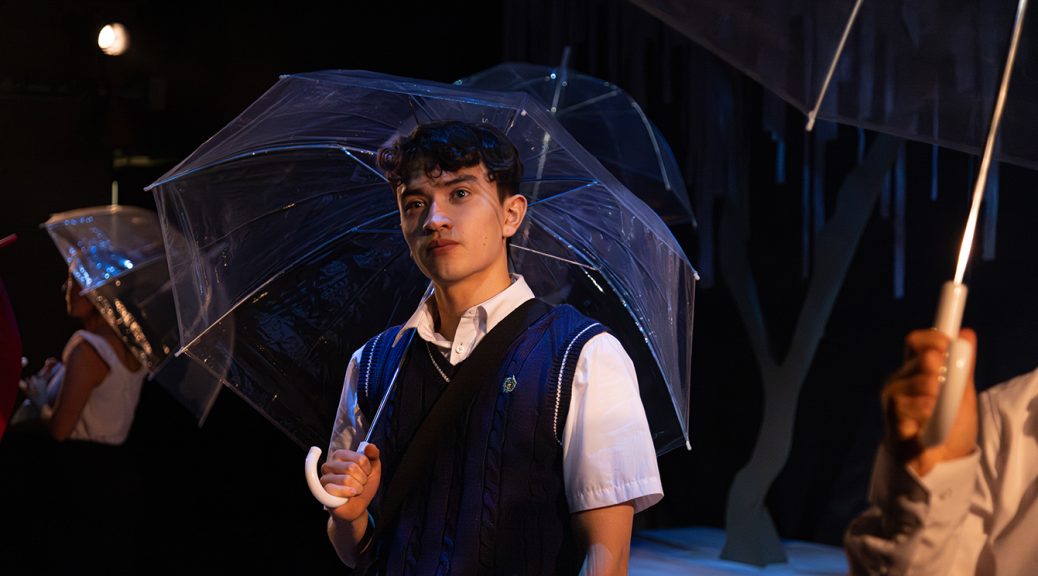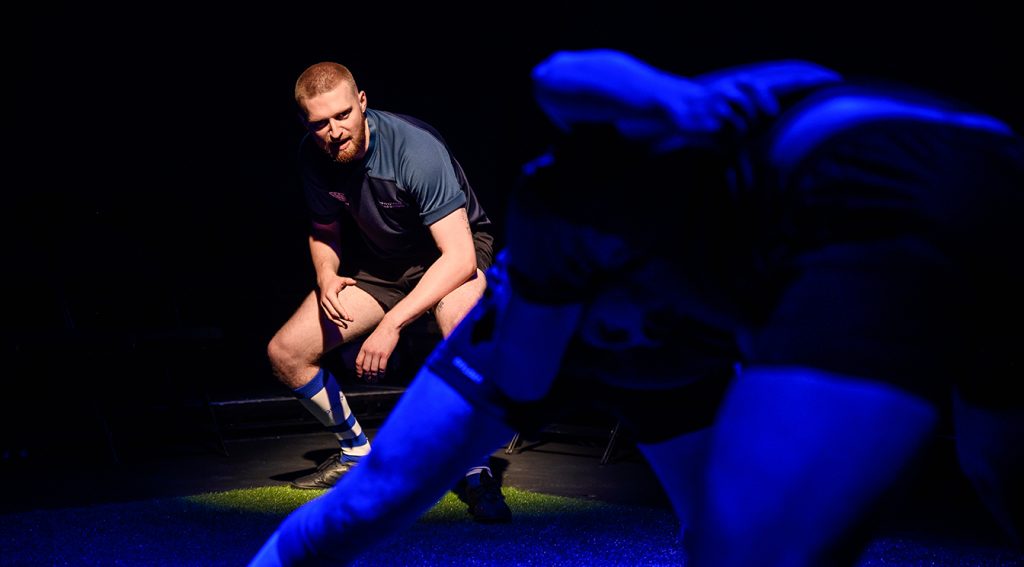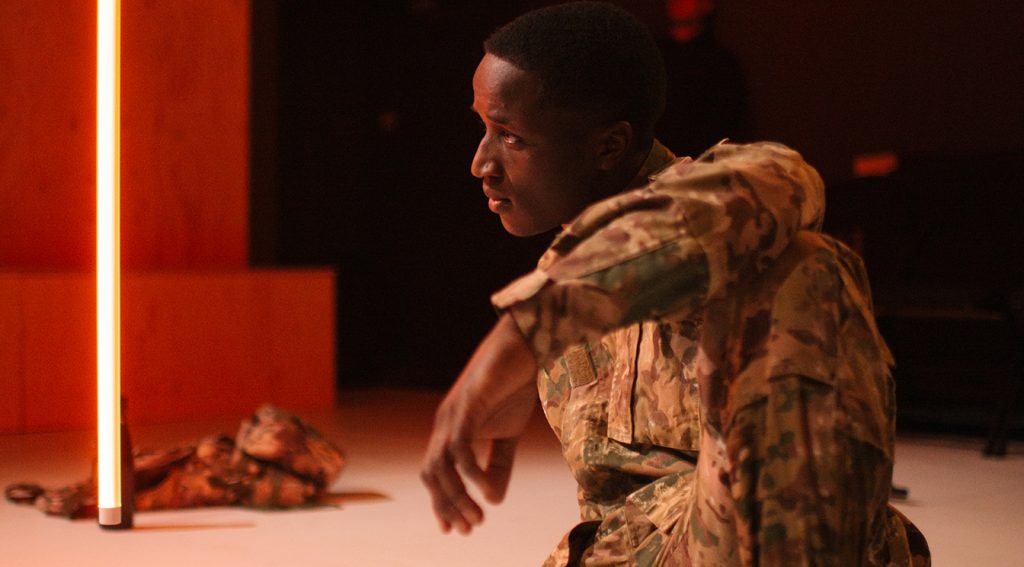It was surely a dream come true for Hannah Doran to win the prestigious Papatango New Writing Prize for her debut play. The piece is a sure and sound choice that benefits from direction by Papatango’s own George Turvey. Set in the cutting room of a butcher’s shop, looking at the lives, loves and hopes of the staff, the story is simple but strong and delivered well.
With the business under pressure (cue nods to gentrification) two apprentices – JD and Billy – end up competing for one job. The lengths they will go to are complicated by an expired visa and a sick mother. The stakes are engaging and there’s a romance with new arrival, T, who is also (ex-convict) Billy’s cousin. So there’s lots of meaty drama to enjoy.
The work-place play is well-trodden ground, sure to remind many of pieces by Lynn Nottage (which is no bad thing). If there are touches of soap opera, it’s all good stuff. Doran has a talent for filling in back stories and making us care about her characters, who she handles evenly – each of the roles interests and the performers respond accordingly.
If the older characters are slightly less convincing, strong performances ensure their success. It is easy to admire the struggling no-nonsense boss Paula (performed by Jackie Clune) and senior cutter David is an interesting, partly devilish creation that Eugene McCoy makes a lot of. David’s bromance with Billy is full of convincing touches. As for the main lovers, the couple are adorable. Marcello Cruz is a charming JD, while Mithra Malek makes an angry – and deliciously unexpected speech – that’s a highlight for T. The object of her ire is cousin Billy, a role Ash Hunter excels in. The audience when I attended had him marked as the villain… I’m not so sure and my hesitation is a good sign.
Billy’s desperate actions are a fine talking point – linking to the American Dream, of course. The play’s politics arrive relatively late and, if there aren’t surprises, the events are satisfyingly explored and staged well. There’s enough complexity in the emotions we see even to excuse a clunky speech from Paula. The whole play is neat, well-presented and served to perfection.
Until 29 November 2025

